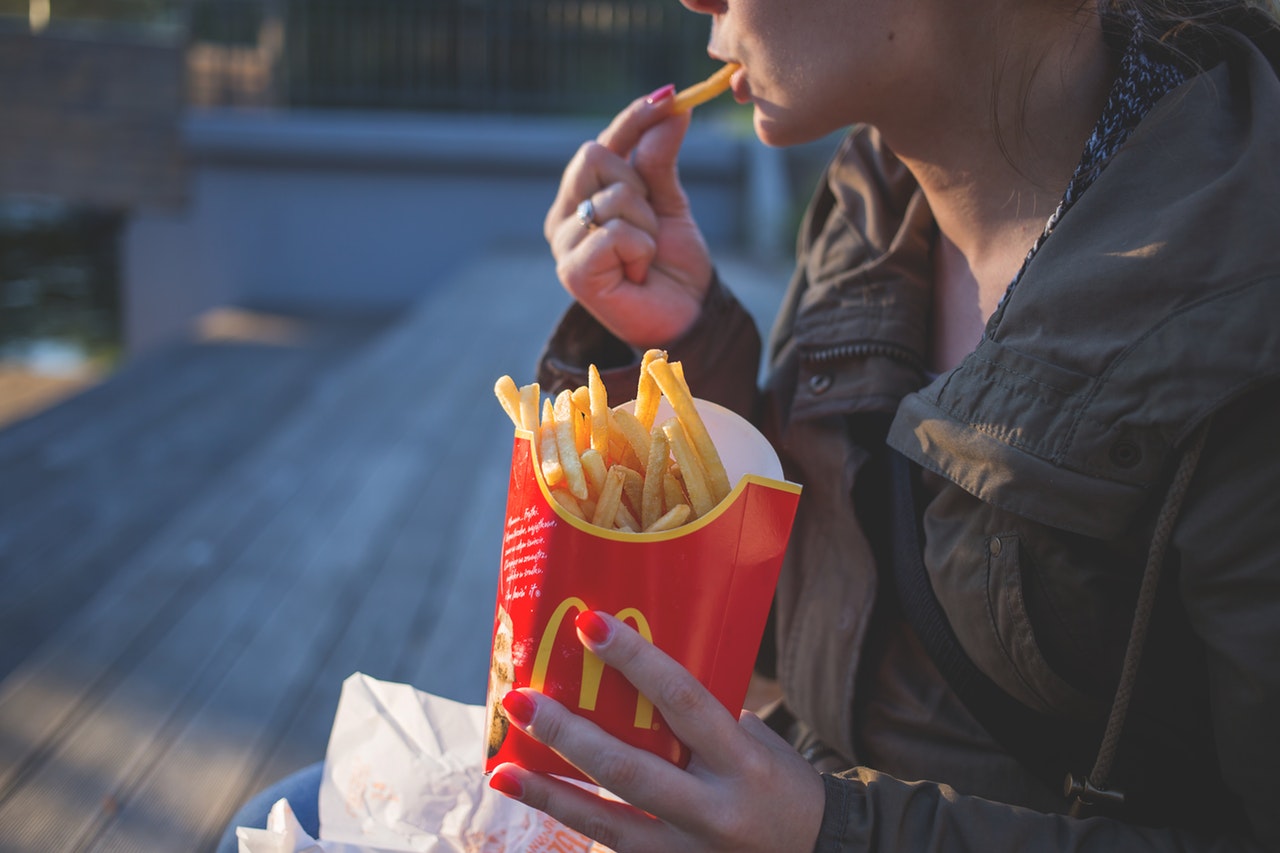When we’re stressed, most of us tend to deal with it by eating what we consider our comfort foods. But our choice of comfort foods doesn’t give us much comfort at all as we usually reach for junk foods or the fattening, sugar-laden ones. And because we tend to overeat when we are stressed, this leads to unhealthy weight gain that will then lead to greater health risks.
Stress Eating Explained
Accordingly, when stressed, our cortisol levels go up and, along with it, our blood sugar levels. This makes us crave for sugar, hence, the tendency to reach out for sugary sweets and junk foods. A number of studies have shown that when we go on sugar overload, the more our body pines for it. This starts a vicious cycle that most likely ends in being overweight or obese which, in turn, results to health complications like cardiovascular diseases and diabetes.
While stress eating is one of the most common coping mechanism people use when dealing with pressures in life, it’s not healthy. So, how do we manage it?
Well, here are very simple ways to do so, ways that have been proven and tested by health experts themselves.

Get a good night’s sleep.
Pulling an all-nighter to finish something work-related is a common occurrence. Most of us equate productivity to how much time we spend working while resting is associated with laziness. However, recent studies show that that’s not the case.
One study discovered that spending long hours on one task is not good as it actually decreases your performance. And if you don’t a get a good night’s sleep, you’ll most likely end up on a negative mood in the morning which could escalate stress, says the joint research by the Universities of Illinois and Michigan. This is especially true on work days when you have to deal with mounting pressures from whatever tasks or projects you need to get done.
“Workday stress leads people to make unhealthy food choices and overeat at dinnertime,” the study further adds.
But if you’ve slept well the previous night, this will help you cope up with whatever unexpected problems that may come your way the next day. And of course, if you don’t feel stressed out, you’re also less likely to stress eat.

Distract your mind with good music, podcast or an audio book.
Listening to a playlist of wonderful songs is ALWAYS the perfect way to de-stress as music is one natural mood lifter. It has also been long used as a relaxation method. According to one well-known nutritionist, a compilation of calming songs or some new ones is just the right distraction to keep your mind from straying into craving salty or sugary foods.
An audio book or a podcast can also do the trick.
A recent study made by German researchers found out that the musical pieces of Mozart and Strauss lowered stress, heart rates and even blood pressures at significant levels. Of course, if you’re not into the classics, your kind of music will also do.
Ditch your smartphone.
Experts agree that while distracting your craving-for-sweets-or-junk-food mind with your smartphone may seem like a good idea, it actually isn’t. As one dietician puts it, when you use your smartphone mindlessly to entertain yourself, unwanted texts or emails could sneak in spiking your stress levels.
Scrolling through your cell phone also makes you a mindless eater which puts you at risk of overeating.
This dietician’s advice: be an attentive eater and turn off your gadgets – even the TV – when you eat.
Go on a walk.
Going for a walk is possibly the to-go-to method when you’re trying to rein in your cravings for something sweet or salty. When you walk, even for just 10 minutes, you’re not just distracting your mind, you’re also getting your much needed dose of endorphin rush [endorphins being your body’s natural feel good hormones]. This reduces your stress levels.
After a walk, wait for an hour to see if you still have the desire to reach out for sweet or salty foods. This buffer period allows time for your stress levels to go down and for the cravings to go away.
And this advice came from a nutritionist who had to battle stress eating herself!

Chuck your car for a two-wheel drive to work.
One recent Canadian research discovered that employees who go biking to work are less likely to feel pressure on the first 45 minutes of their shifts, the first portion of the day that sets the tone of the rest of the working hours.
These employees went on to have better work performances compared to their counterparts who commuted to work using cars or public transport.
so if your work has been leaving you stressed out lately, consider riding a bike to work.
Look for healthier food choices to feed your cravings.
This last advice falls into the category of “if you can’t beat them, join them”. But do it wisely – look for foods that are better and healthier alternatives to the overly sweet ones or the junk foods. Below are just some of the foods that are healthy and actually lower stress levels:
- Oatmeal
- Bananas
- Turkey
- Avocados
- Spinach
- Asparagus
- Celery
- Milk
- Almonds
- Oranges
- Salmon
- Blueberries
- Oranges
- Cucumbers
Don’t think that stress eating isn’t manageable because it is. However, if the simple tips above don’t help, it’s time to seek out professional help.



